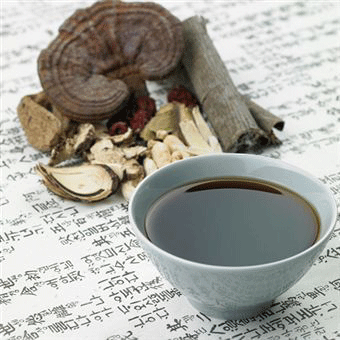Your basket is currently empty!
Lingzhi – The World’s Oldest Medicinal Mushroom
Lingzhi art created by Hu Zhengyan c.1582 -1672
In Chinese culture, the reishi is known as the “lingzhi” mushroom, which can be translated a number of ways: “Mushroom of Immortality;” “Divine Mushroom;” and “Herb of Spiritual Potency” are just a few variations of its direct translation. The Chinese believed that ganoderma lucidum was the most divine of all herbs, and could be used medicinally to empower the spirit unlike anything else. While it is more commonly known as ‘reishi’ internationally, lingzhi is the oldest name for this mushroom, and it is still revered in Chinese culture as a symbol of great health, luck, and longevity.
The first mention of the lingzhi was documented as far back as 475 B.C. in Chinese historical records. There were six different colors of reishi, though the Chinese believed that the red reishi offered the most health benefits. The red reishi was rare enough in those times that only mystic holy men known as fangshi knew how to find prepare it. Because the reishi mushroom was so hard to find and was believed to have so much spiritual power, only the Emperor and members of the high nobility could afford to the high price of the lingzhi.
In its more than 2,000 years of use as a medicinal herb, the reishi mushroom has been used to treat everything from failing memory and the effects of aging, to increased cardiac function. Chinese philosophers from the year 320 C.E. even believed that consuming lingzhi could bestow thousands of years of life to the person who managed to find one of these rare mushrooms!
Though their claims were quite grand, these ancient Chinese alchemists were actually correct in believing that the lingzhi improved health. Modern science has proven through rigorous scientific testing that this once-legendary mushroom can boost the immune system, reduce inflammation, and antioxidize the body, along with a host of other beneficial effects.
The Modern Reishi
As time passed, lingzhi became more easy to cultivate and more accessible. The mushroom and its reputation of good health spread to Japan, where it became known as mannentake, and more popularly, reishi! Because of its widely-respected health benefits, the mushroom continued to spread throughout Korea, Vietnam and eventually was introduce to Europe by traders.
Today, the mushroom is often dried and soaked in water to create the very bitter-tasting ‘lingzhi tea.’ The triterpenes present in the reishi mushroom are the source of many of its health benefits… and the intensely bitter flavor. The potency of the triterpenes is actually proportional to how bitter it is, so the more bitter a cup of lingzhi tea is, the more potent its health benefits are. In other words, people don’t drink reishi tea to enjoy the taste!
Because of its off-putting flavor, reishi mushroom extracts have becoming increasingly popular. Reishi extracts come with all of the benefits the reishi has to offer – and none of the downsides. The mushrooms used in Reishi Force™ go through a careful extraction process that preserves the potency of the mushroom’s triterpene-rich spores – which are left out of other reishi extracts!
The great potency of Reishi Force™ would likely make for an unbearably bitter tea – but because Reishi Force™ is in pill-form, the supplement can be taken with a sip of water without the fear of an unsavory flavor. If you want to get all of the benefits that the lingzhi has to offer, there is no better way than to take Reishi Force™.
